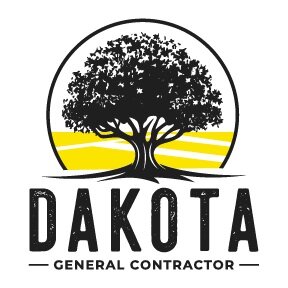
Land Acquisition Tips for Building a Custom Home in Greenville SC
Building a custom home is a dream for many, offering the opportunity to create a living space tailored to your specific needs and preferences. However, one of the most critical steps in this process is acquiring the right piece of land.
In Greenville, SC, the growing popularity of custom homes makes land acquisition a competitive endeavor. At Dakota General Contractor, we understand the complexities involved in finding the perfect plot for your dream home.
Here are some essential tips to guide you through the land acquisition process in Greenville.
1. Understand Zoning Laws and Regulations
Before you start searching for land, it's crucial to understand the local zoning laws and regulations in Greenville, SC. Zoning laws dictate how land can be used and can significantly impact your building plans. Different areas may be zoned for residential, commercial, or agricultural use, and there may be restrictions on the type of home you can build.
Tips:
Contact the Greenville County Zoning Department to get detailed information on zoning regulations.
Consider hiring a land-use attorney to help navigate complex zoning issues.
Verify if there are any easements or deed restrictions that could affect your building plans.
2. Consider the Location
Location is one of the most important factors when acquiring land for your custom home. The right location can enhance your quality of life and increase your property value.
Factors to Consider:
Proximity to Amenities: Look for land that is conveniently located near schools, shopping centers, healthcare facilities, and recreational areas.
Neighborhood: Research the neighborhood to ensure it aligns with your lifestyle and preferences. Consider factors like safety, noise levels, and community vibe.
Future Development: Investigate any planned developments in the area that could impact your property value or living conditions in the future.
3. Assess the Land’s Topography and Soil Quality
The physical characteristics of the land are crucial for your building plans. The topography, soil quality, and drainage capabilities can affect construction costs and the stability of your home.
Tips:
Hire a professional surveyor to assess the land’s topography and identify any potential issues.
Conduct a soil test to determine the soil’s bearing capacity and composition. Poor soil quality can lead to structural problems and increased construction costs.
Ensure the land has proper drainage to prevent waterlogging and foundation issues.
4. Check Utility Access
Access to essential utilities is a key consideration when acquiring land for a custom home. Make sure the land can be easily connected to water, electricity, gas, and sewer lines.
Tips:
Contact utility providers to confirm the availability and cost of connecting utilities to the land.
Consider the cost of extending utility lines if the land is located in a remote area.
Verify if the land has access to high-speed internet and other modern amenities.
5. Budget for Additional Costs
When planning your budget for land acquisition, it’s important to account for additional costs beyond the purchase price. These costs can include land surveys, permits, utility connections, and site preparation.
Additional Costs to Consider:
Land Survey: Essential for determining property boundaries and identifying potential issues.
Permits and Fees: Building permits, zoning fees, and other regulatory costs can add up.
Site Preparation: Clearing the land, grading, and preparing the site for construction can be costly.
Utility Connections: Connecting the land to essential utilities may require significant investment.
6. Work with a Real Estate Agent Specializing in Land Acquisition
A real estate agent with experience in land acquisition can be invaluable in your search for the perfect plot. They can help you navigate the market, identify suitable properties, and negotiate favorable terms.
Tips:
Choose a real estate agent familiar with the Greenville area and its real estate market.
Look for agents with a proven track record in land acquisitions for custom homes.
Utilize the agent’s network to access off-market properties and exclusive listings.
7. Evaluate the Land’s Potential for Customization
When building a custom home, you want a piece of land that offers flexibility and potential for customization. Consider how the land’s size, shape, and orientation will impact your home design and layout.
Tips:
Work with your custom home builder to assess the land’s potential and determine if it meets your design requirements.
Consider how the land’s orientation affects natural light and energy efficiency.
Think about future landscaping and outdoor living spaces when evaluating the land.
8. Plan for Future Growth
Consider your long-term plans and how the land can accommodate future growth. Whether you plan to expand your home, add a pool, or create additional outdoor spaces, choose land that can support your future needs.
Tips:
Think about your family’s future needs and how your living space might evolve.
Ensure the land has enough space for potential expansions and additions.
Consider the resale value and how future growth might impact the property’s marketability.
Build Your Custom Home in Greenville, SC
Acquiring the right piece of land is a crucial first step in building your custom home in Greenville, SC. By understanding zoning laws, considering the location, assessing the land’s topography and soil quality, checking utility access, budgeting for additional costs, working with a specialized real estate agent, evaluating the land’s customization potential, and planning for future growth, you can make an informed decision and set the foundation for your dream home.
At Dakota General Contractor, we are dedicated to helping you through every step of the custom home-building process. Contact us today to learn more about how we can assist you in finding the perfect land and building the home of your dreams in Greenville, SC.
